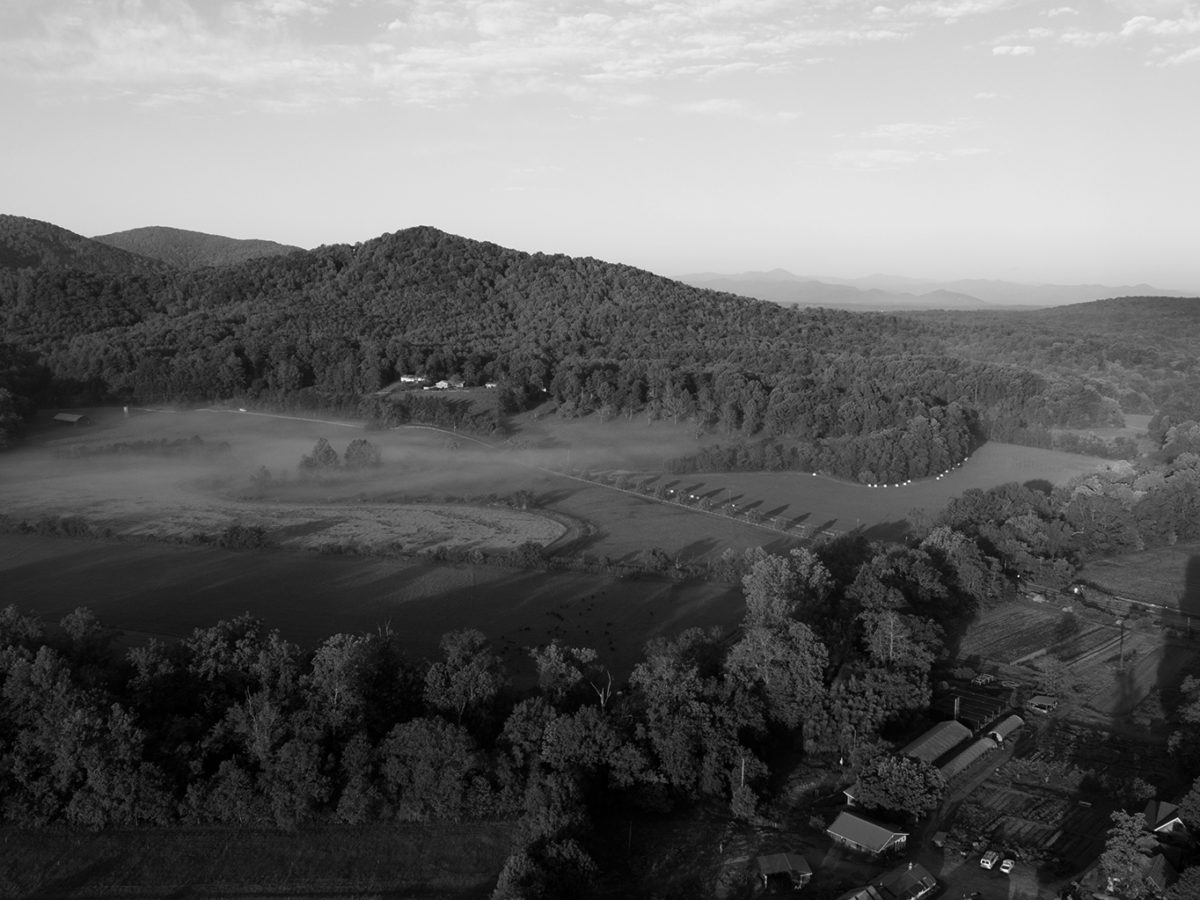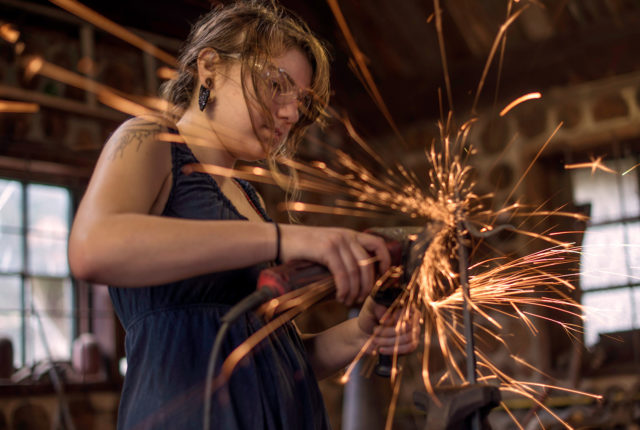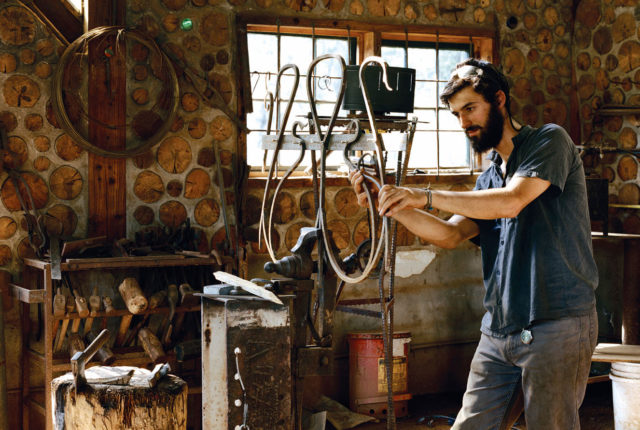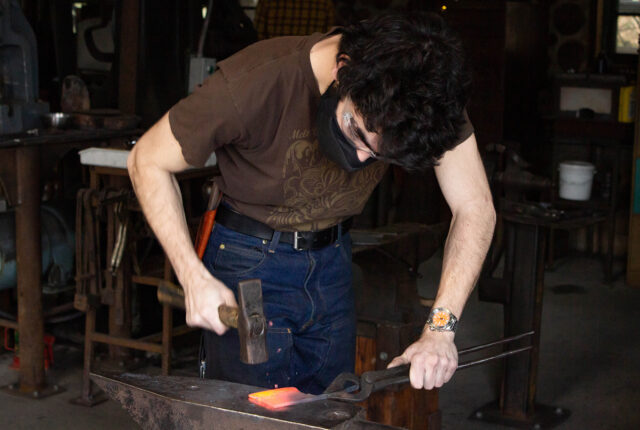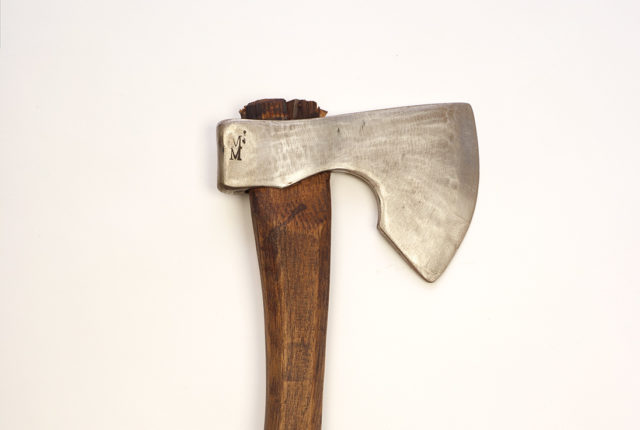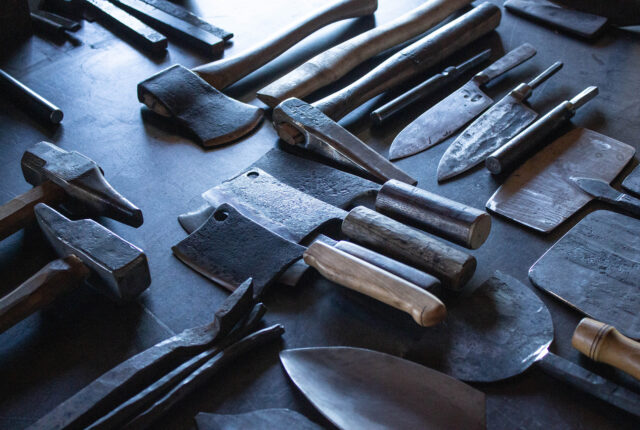Shaping apprentices. Forging community.
It’s hot, it’s dirty, and to Blacksmith Crew students, it’s home. A student-led initiative in 2001 resulted in the Warren Wilson College Blacksmith Shop, expanded significantly in the summer of 2017.
Students on the Blacksmith Crew create quality handmade craft items, build tools used by other campus work crews, and create architectural and decorative wrought ironwork around campus. Learning under an apprenticeship model, dedicated students assume roles as assistant, demonstrator, crew leader, designer, and artist blacksmith. In turn, they teach the Warren Wilson community their craft during open forge events they host.
